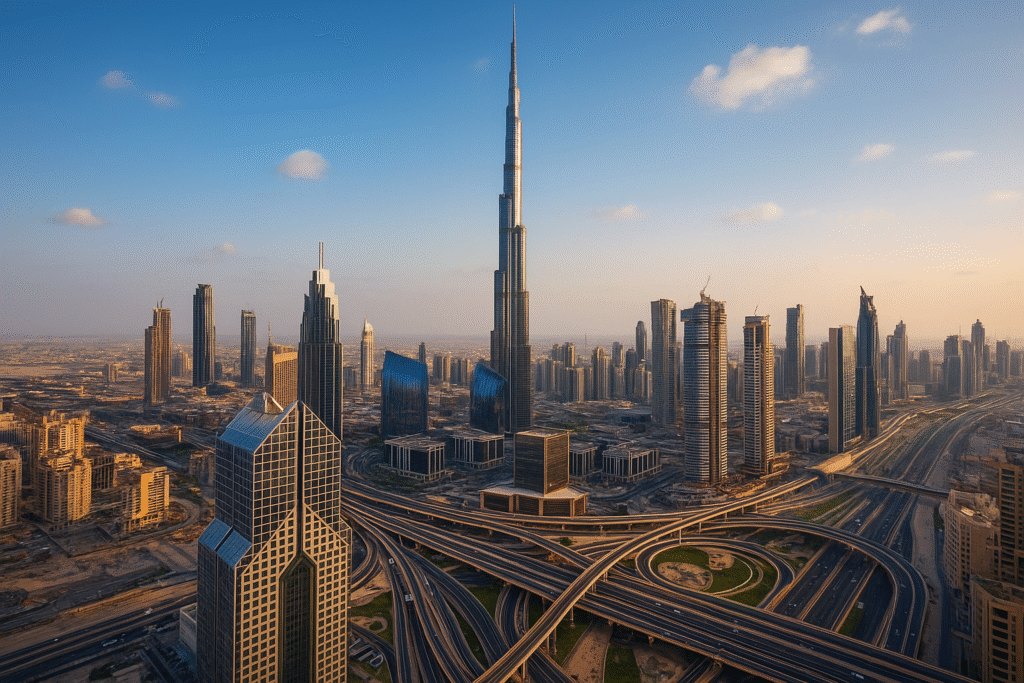The Dubai real estate market has long been a subject of international attention. Once fueled by speculation, the emirate’s property sector is now maturing into a data-driven ecosystem powered by robust infrastructure, sustainable policies, and measurable investor confidence. With global investors seeking stable and transparent markets, Dubai’s property growth is increasingly backed by facts, figures, and structured reforms rather than hype or short-term speculation.
A Data-Driven Shift in Dubai Real Estate

For years, critics claimed Dubai’s property boom was a bubble. Today, however, transparent reporting, government-backed policies, and advanced market analytics are reshaping the narrative. Investors can now access data from official platforms like the Dubai Land Department (DLD) and Real Estate Regulatory Authority (RERA), which provide clarity on property transactions, rental yields, and project completions.
According to DLD statistics, real estate transactions exceeded AED 500 billion in 2023, setting a new record for the emirate. This was not a random spike—it was built on genuine demand from both residents and global investors.
Key Drivers of Sustainable Real Estate Growth in Dubai
1. Population Growth and Demographics
Dubai’s population is expected to cross 6 million residents by 2040, with consistent annual growth supported by expatriate inflows, long-term visas, and job opportunities. This demographic expansion drives steady demand for residential and commercial spaces, ensuring organic real estate growth.
2. Economic Diversification
Dubai is no longer dependent solely on oil. With thriving sectors like finance, tourism, logistics, technology, and renewable energy, real estate demand stems from economic diversity. The emirate’s long-term development vision supports growth across multiple industries, which in turn stabilizes property demand.
3. Government Reforms and Transparency
Key reforms such as Golden Visas, 100% business ownership, and stronger investor protections have transformed Dubai into a trusted hub for real estate investment. The introduction of Ejari rental contracts, escrow accounts for developers, and blockchain-enabled land registration further guarantees transparency.
4. Infrastructure and Mega-Projects
Dubai’s world-class infrastructure—including international airports, metro systems, and planned smart-city developments—adds measurable value to its real estate. Projects like Dubai Creek Harbour, Mohammed Bin Rashid City, and Expo 2020 legacy developments are concrete growth drivers rather than speculative ideas.
5. Tourism and Global Appeal
As one of the most visited cities in the world, Dubai attracts millions of tourists annually. Many convert their visits into property investments, fueling demand for short-term rentals, serviced apartments, and vacation homes.
Data Highlights: Market Performance in Numbers
- AED 528 billion in transactions in 2023 – the highest in history.
- Over 100,000 real estate transactions recorded in a single year, a 17% YoY increase.
- Average rental yields between 6%–8%, higher than cities like London, New York, or Singapore.
- Residential price growth of 15% in prime areas such as Palm Jumeirah and Downtown Dubai.
- Commercial real estate occupancy rates rising steadily, reflecting Dubai’s position as a global business hub.
Why Dubai Real Estate Is No Longer Speculative
Unlike the pre-2008 property boom, today’s growth is structured and driven by fundamentals:
- End-user demand rather than flippers.
- Regulated payment plans that prevent over-leveraging.
- Data transparency from government authorities.
- Balanced supply and demand, avoiding oversaturation.
The property market has evolved into a mature, investment-grade asset class, competing with established global markets.
Investment Opportunities Backed by Real Data
Residential Properties
Apartments in areas like Dubai Marina, Downtown Dubai, and Business Bay continue to attract international investors, while villa communities such as Arabian Ranches and Jumeirah Golf Estates cater to long-term family living.
Luxury Real Estate
With record-breaking deals on ultra-luxury villas and penthouses, Dubai has positioned itself as a global luxury property capital. Data shows a 30% increase in transactions above AED 10 million in 2023 alone.
Commercial Real Estate
The rise of Dubai as a tech and financial hub is pushing demand for Grade-A office spaces, making commercial property investment increasingly profitable.
Short-Term Rentals and Holiday Homes
With Airbnb-style accommodations in high demand, Dubai landlords benefit from one of the world’s strongest short-term rental markets, supported by consistent tourism growth.
Future Outlook: Data Points to Continued Growth
Expo 2020 Legacy and Beyond
The Expo 2020 site transformed into District 2020, a smart and sustainable community attracting businesses, startups, and residents. This long-term development ensures sustained demand for real estate.
Dubai 2040 Urban Master Plan
The government’s Urban Master Plan envisions a sustainable city with increased green spaces, affordable housing, and well-distributed infrastructure, ensuring balanced property demand for decades to come.
Tech-Driven Real Estate Solutions
Blockchain-based land transactions, AI-powered property evaluations, and smart home technologies are creating a future-proof real estate ecosystem.
Conclusion: Dubai Real Estate Built on Solid Foundations
The transformation of Dubai’s property market from speculation to data-driven growth has been remarkable. With transparency, infrastructure development, investor-friendly reforms, and global demand, Dubai stands as one of the most sustainable and attractive real estate markets worldwide.
For global investors seeking stability, transparency, and profitability, Dubai real estate is no longer a gamble—it is a calculated, data-backed opportunity.
